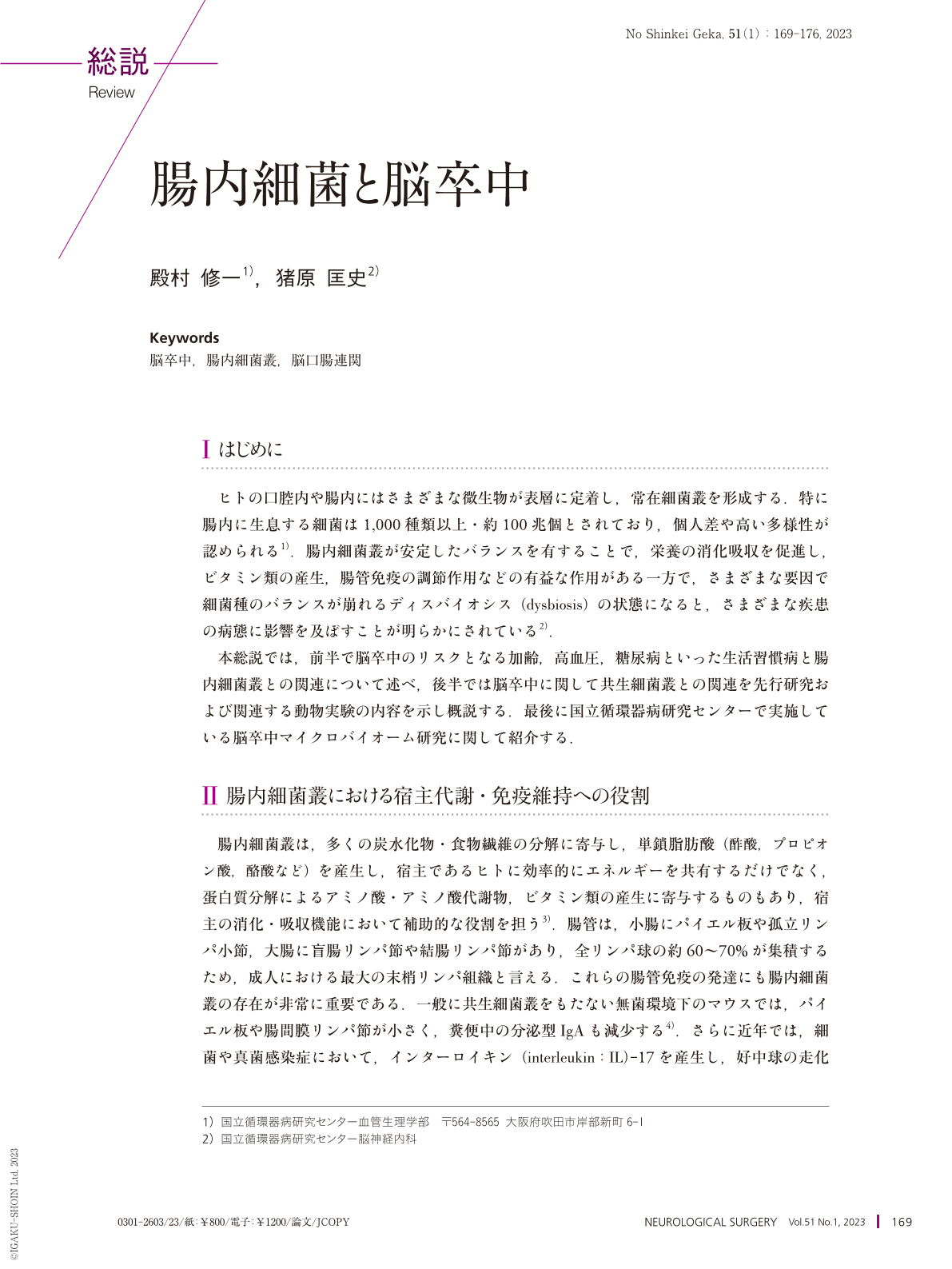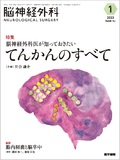Japanese
English
- 有料閲覧
- Abstract 文献概要
- 1ページ目 Look Inside
- 参考文献 Reference
Ⅰ はじめに
ヒトの口腔内や腸内にはさまざまな微生物が表層に定着し,常在細菌叢を形成する.特に腸内に生息する細菌は1,000種類以上・約100兆個とされており,個人差や高い多様性が認められる1).腸内細菌叢が安定したバランスを有することで,栄養の消化吸収を促進し,ビタミン類の産生,腸管免疫の調節作用などの有益な作用がある一方で,さまざまな要因で細菌種のバランスが崩れるディスバイオシス(dysbiosis)の状態になると,さまざまな疾患の病態に影響を及ぼすことが明らかにされている2).
本総説では,前半で脳卒中のリスクとなる加齢,高血圧,糖尿病といった生活習慣病と腸内細菌叢との関連について述べ,後半では脳卒中に関して共生細菌叢との関連を先行研究および関連する動物実験の内容を示し概説する.最後に国立循環器病研究センターで実施している脳卒中マイクロバイオーム研究に関して紹介する.
Stroke is the fourth leading cause of death and second leading cause of disability in Japan. Advances in DNA sequencing and bioinformatics have increased identification of host-microbial interactions in various systemic diseases. This review introduces the association between microbiome and stroke in human and animal models. The microbiota directly or indirectly interacts with vascular risk factors, including age, obesity, hypertension, diabetes mellitus, and hyperlipidemia. Moreover, emerging evidence suggests that the microbiome independently affects the progression of various stroke subtypes. Finally, we introduce our ongoing stroke microbiome research to perform comprehensive analyses and discover personalized therapeutic targets.

Copyright © 2023, Igaku-Shoin Ltd. All rights reserved.


